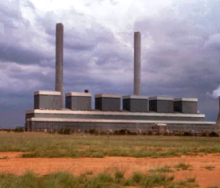The devastating inferno at the Matanzas fuel oil terminal in Cuba has finally been extinguished, but the damage to marine operations and the country’s oil-fed power grid is far from over.
The fire, which raged for six days at the country’s biggest petroleum import terminal, destroyed four of the site's eight large fuel storage tanks, impacting marine terminal operations and forcing tankers to divert to smaller ports.
The fire broke out on the night of Friday, August 5, when lightning struck and ignited the first tank.
According to Maritime Executive, the massive blaze spread gradually down the line for the next three days, igniting four tanks in one section. A total of 130 people were injured during the incident and at least six people have been confirmed dead. The Cuban Ministry of Public Health reported that four firefighters had died while trying to fight the blaze.
“The damage at Matanzas adds to the already-dire situation of Cuba's oil-fired electrical grid. The island is now experiencing a 50% shortage of electrical power-generating capacity, leading to persistent, daily rolling blackouts,” the publication reported.
Breakdowns at Cuba's ageing thermal power plants are the main cause of the blackouts. However, the loss of half of the storage capacity at Matanzas, which apart from being the largest fuel import terminal is also the only facility capable of handling tankers over 100 000 dwt, is adding supply-chain disruption to the crisis.
Automatic Identification System (AIS) tracking has revealed that some tankers are now diverting away from Matanzas to call at smaller ports.
According to Reuters, the NS Natanza, with a load of Russian oil, has diverted to the port of Antilla instead of Matanzas, while the Cuban-flagged tanker Maria Cristina has diverted to Santiago de Cuba, and Venezuelan crude cargo aboard the tanker Vilma will be delivered to Antilla. It is easy for these smaller vessels to change their routes, but unloading arrangements for larger vessels could require ship-to-ship transfers and lightering at smaller ports.
Meanwhile, the US Embassy in Cuba, which had earlier announced that the US was ready to assist with humanitarian support if required, said in a statement that it was relieved that the fire had been contained.
“We wish a speedy recovery to all the individuals and families who have been affected. We hope that any significant environmental impact on the people of Cuba can be easily mitigated,” the Embassy said.













